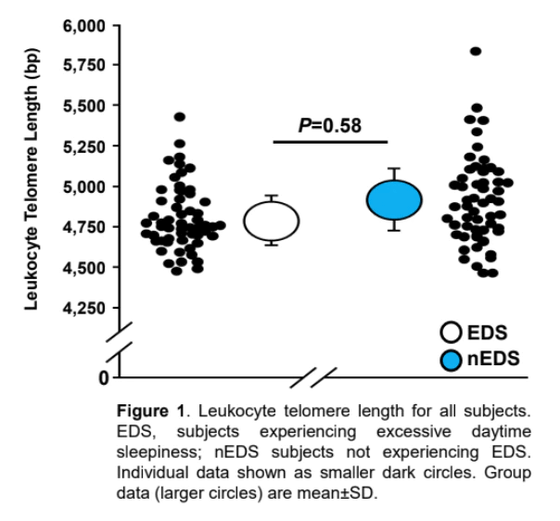Daytime sleepiness may be associated with short lifespan

Studies have shown that sleep deprivation
Daytime sleepiness may be linked to genetic markers for longevity
https://www.inverse.com/mind-body/daytime-sleepiness-may-be-aging-you
Daytime sleepiness may be slowly killing you
https://www.zmescience.com/science/news-science/daytime-sleepiness-may-be-slowly-killing-you/
Telomeres are structures that exist at the ends of chromosomes, play a role in protecting DNA strands in chromosomes, and have the property of shortening with each cell division. Telomeres are also called 'biological age indicators' because there are studies showing that if telomeres are shorter than expected from age, the risk of cardiovascular disease increases and cognitive function declines. Is called.
Joshua Bock, who is studying genetic markers related to sleep apnea syndrome (SAS) -related genetic markers , which is estimated to affect about 25 million Americans at the Mayo Clinic, is a subject. We conducted an experiment to investigate the relationship between daytime sleepiness, SAS, and telomere length from blood samples collected from 210 people and the results of interviews.
Based on the results of the interview, Mr. Bock described the subjects as 'daytime sleepiness / SAS', 'daytime sleepiness / no SAS', 'daytime sleepiness / SAS', and 'daytime sleepiness / no SAS'. Classify into groups and compare telomere lengths in each group from blood samples. As a result, when people with sleep apnea syndrome were completely excluded and compared only in the groups of 'daytime sleepiness / no SAS' and 'daytime sleepiness / no SAS', there was daytime sleepiness. The results showed that the group had short terrorism. The graph below shows that the Leukocyte Telomere Length on the EDS side is significantly shorter when comparing EDS (with daytime sleepiness) and nEDS (without daytime sleepiness). I am.

Regarding this study, Mr. Bock said that drowsiness was subjective, and that the questionnaire gave only the choices of 'have experienced daytime sleepiness' and 'not', and the head of telomeres. He acknowledged that there is a limit to how much can affect real life in terms of unknowns, and said, 'Sleep is not a luxury and anyone can take it. What to do every day. Two of the most common are healthy eating and exercising, but healthy sleep should also be mentioned. ' He says he plans to study the length of the gut microbiota and telomeres that produce inflammation.
Related Posts:
in Science, Posted by darkhorse_log







